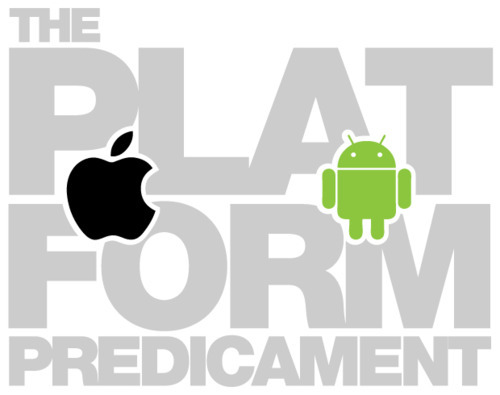
By Michael Davidson
BOULDER — If Google has landed a crucial blow in the battle for smartphone supremacy the news has yet to reach the Boulder Valley.
Area app developers say the market for apps written for Google’s Android operating system remains weak while demand for apps for the Apple iPhone, iPad and iPod Touch, which use the iOS operating system, continues to be strong.
That comes despite reports that the number of Android users has surged ahead of the number of iOS users as Google’s platform claimed the largest share of the smartphone market.
A market share survey released in March by comScore, a digital market research company, found 31.2 percent of the 65.8 million smartphone users in the U.S. use Android. Use of Android devices grew by 7.7 percent in the three months since the company’s last survey, the survey’s authors found.
Apple’s market share grew by 0.1 percent, to 24.7 percent of the market, during that time.
The news is not really affecting the long-term strategies of some of the area’s leading mobile-app developers, although they might add more Android developers to their staffs.
Rage Digital Inc. will remain focused on developing apps for the iPhone, iPad and iPod, chief executive Ted Guggenheim said.
The three-year-old company, which employs four people, had a hit during the 2010 Winter Olympics with its Cowbell2010 app, which for 99 cents allowed users to download an iPhone version of the noisemaker.
Rage Digital also partnered with Hyundai Motors to release an iPad-based owner’s manual for the new Hyundai Equus in December.
The company has a strong relationship with Apple, which has referred clients to Rage Digital.
“We’ve kind of created a niche for ourselves as one of the premier boutique iOS developers in the country,” Guggenheim said.
Some of Rage Digital’s bigger clients are interested in apps developed for a single platform or device the company gives to clients. The app for the Hyundai Equus owner’s manual is installed on an iPad that is included with the vehicle.
PepsiCo followed a similar strategy earlier this year, when VIPs it invited to Dallas in the week leading up to the Super Bowl were given iPod Touches that came preloaded with a Rage Digital app that was a planning guide.
The company’s employees are ardent Apple and Mac loyalists, Guggenheim said, but the company is looking to add an Android developer as more businesses want apps on that platform.
“We don’t do a lot of (programming for Android), although it’s becoming more of a prerequisite these days.
Even if Android has surpassed iOS in terms of the number of users, it does not mean companies are rushing to develop business apps for the platform. A large part of Android’s success has been with consumers who receive steeply discounted smartphones from wireless providers.
The demand for business apps has not been as great, said Brad Weber, CEO and chief technology officer of Inspiring Applications Inc., dba InspiringApps.
The Boulder-based company employs 15 people, and it is tightly focused on the business solutions market, Weber said.
InspiringApps has partnered with the ZOLL Medical Corp. to develop an iPad app that emergency medical personnel can use to create patient-care reports. It also developed or is developing apps that help manage mobile work crews like landscapers and for sales reps.
“We’re leading with iOS because that’s where the demand seems to be,” Weber said. “We haven’t been seeing the demand (for Android apps). We might not be looking for it, but it’s definitely not looking for us.”
Programming in iOS allows companies to develop software for tablets like the iPad, which largely has the tablet market to itself.
The split market divided between dueling platforms is reminiscent of past splits over PC operating systems or web browsers, said Lisa Calkins, chief executive of Amadeus Consulting Group Inc.
Amadeus Consulting is one of the biggest software development companies based in Boulder, with about 65 employees. About a third develop mobile apps, Calkins said.
In addition to Android and iOS, Amadeus Consulting develops apps for the Windows Phone 7 and BlackBerry platforms. While the latter two platforms lack the buzz of iOS and Android, their market share, according to comScore, is 8 percent and 30 percent respectively.
Clients and potential clients are concerned about what they should do, which platform will last and what’s reliable, Calkins said.
“It’s almost like when the Internet and web development for the public and businesses started,” Calkins said. “Everybody wants to know what platform should I be developing for, what should I do first.”
Adding to the confusion is the fact that apps do not readily port from one platform to another. The platforms were developed using different software languages, and much of an apps code has to be rewritten for each platform.
“There is no magic solution that’s cross platform,” Calkins said. “Unfortunately when you’re a buyer, it’s very hard to understand that.”
Amadeus Consulting developed the software that B-cycle uses to run the Denver bike sharing program. The same system will be used in Boulder when its program is launched in May.
The company developed apps for both Android and iOS that let users locate bike sharing stations, get directions and monitor their accounts.
Calkins expects that while one platform might emerge as the market leader it is unlikely one will dominate the industry like Microsoft does with PC operating systems.
But if it is bad news for businesses that have to figure out what platform best suits them, it can be good news for software developers.
“There’s a shortage of high quality developers no matter what platform you’re in,” Calkins said.
